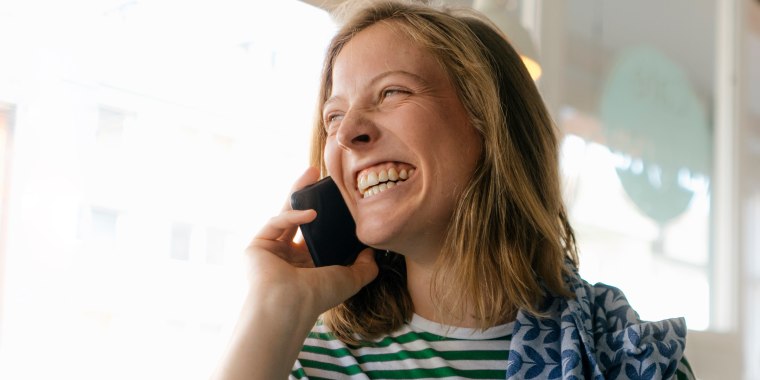You’d like to connect with an old pal you haven’t talked with in a long time, but worry the friend won’t be especially happy to hear from you. If worry is what’s holding you back, new research may spur you to reach out.
A series of experiments involving nearly 6,000 participants revealed that people consistently underestimate how much others in their social circle appreciate an unexpected check-in, whether it’s by phone, text or email, according to a study published in the Journal of Personality and Social Psychology.
“Often when people cross our minds and we wonder how they’re doing, we wonder if we should reach out,” said the study’s lead author, Peggy Liu, Ph.D., associate professor of business administration at the University of Pittsburgh. “I’m hoping this research removes one of the barriers that might be in the way of people reaching out.”
In one experiment, Liu and her colleagues asked 100 participants to recall the last time they reached out to someone in their social circle just to catch up after a long time without any interactions. Another 100 volunteers were asked to recall a similar situation, but in this case, they were the ones receiving the phone call, text or email.
The volunteers were then asked to rate on a seven-point scale — ranging from “not at all” to “to a great extent” — how much the contact had been appreciated. The researchers found that, on average, when people were on the receiving end of an unanticipated check-in, they rated their appreciation significantly higher than people who reached out to a buddy guessed at how much the friend appreciated the contact: 5.87 versus 5.50.
In another experiment, the researchers recruited undergraduate students who were asked to name a fellow college student in their social circle with whom they typically had pleasant encounters but had not recently interacted. They were asked to type a short note to their buddy saying they wanted to "check in and say hello" and also to guess how well the note would be received.
The friends received the notes via email alongside an anonymous survey asking them to rate how much they appreciated the note. Again, the senders underestimated how well their notes would be received. On average their rating was 5.57, as compared to the 6.17 rating from the receivers.
In the experiments, receivers consistently rated their appreciation highest when the communication was unexpected. “When it’s really surprising, the appreciation gets a real boost,” Liu said. “I think the common thread through these various findings is that people who are reaching out do not realize how much others appreciate being on the receiving end.”
The research also suggests that “people often are yearning to connect as much as you are,” Liu said. “If neither of you takes the first step, that’s a sad outcome. I’m hoping this research might prompt people to be the first person to initiate social reconnection.”
The new study adds to a growing body of research showing that there is a negativity bias in friendship, said Marisa Franco, Ph.D., assistant clinical professor at the University of Maryland and forthcoming author of “Platonic: How the Science of Attachment Can Help You Make—and Keep—Friends.”
For example, Franco said, when people meet strangers they underestimate how much the strangers will like them. And that’s especially true when we are feeling vulnerable for some reason.
It’s important to recognize that negative bias “and to check ourselves when we downplay the impact of behaviors in friendship,” Franco said. "We need to recognize that just because it feels true that people don’t want to hear from us that it doesn’t mean it actually is true.”
Franco suspects that negative bias in friendship develops as a means of self-protection; if we have low expectations, we won’t be hurt or disappointed. But there’s a downside to all that self-protection.
“People underestimating how impactful their actions could be will be less likely to take those actions,” Franco said. “This is especially true with the pandemic, which has been shown to make people slightly lonelier. So now more than ever, people want to hear from you.”

